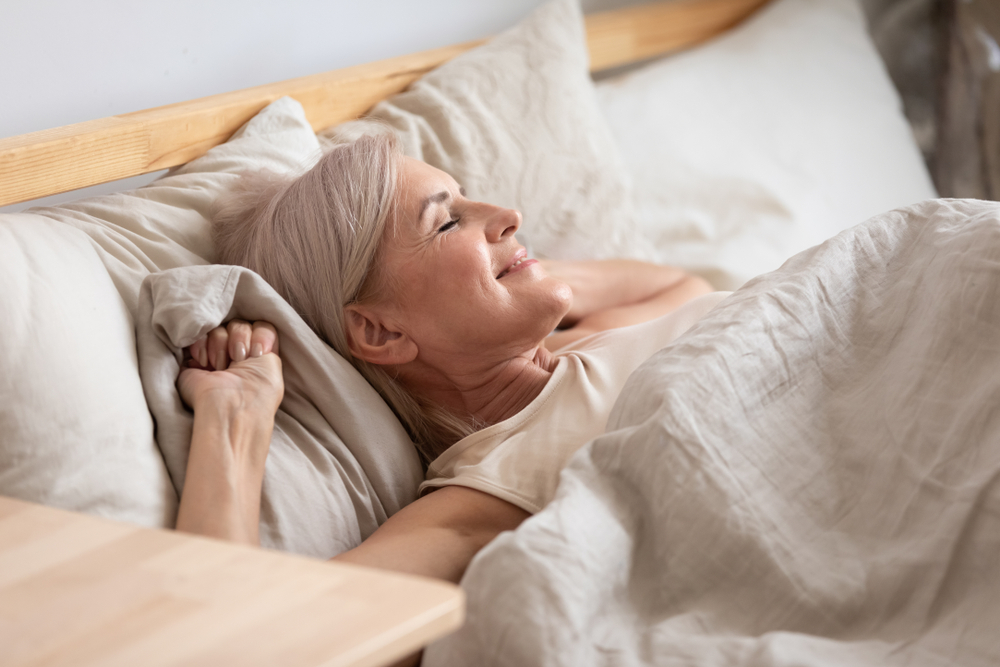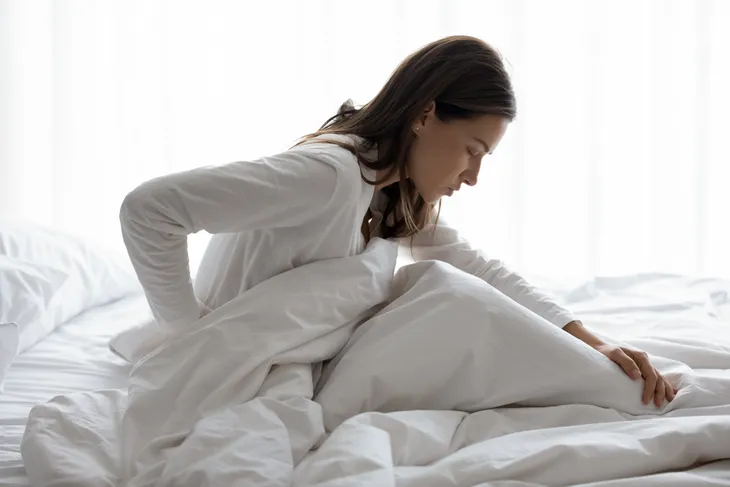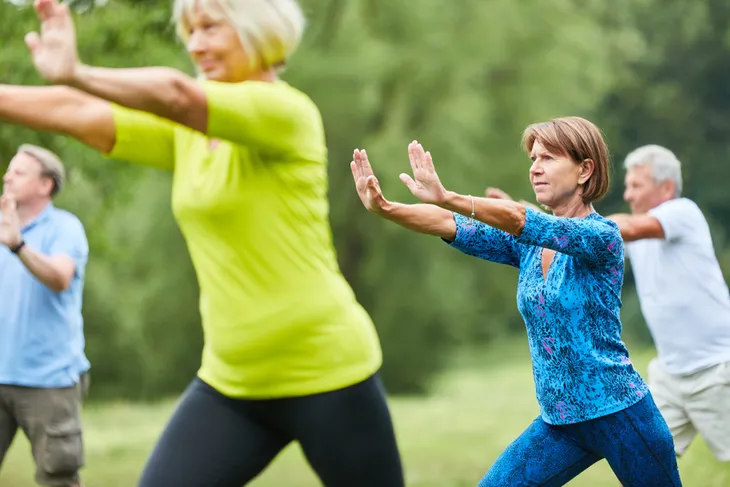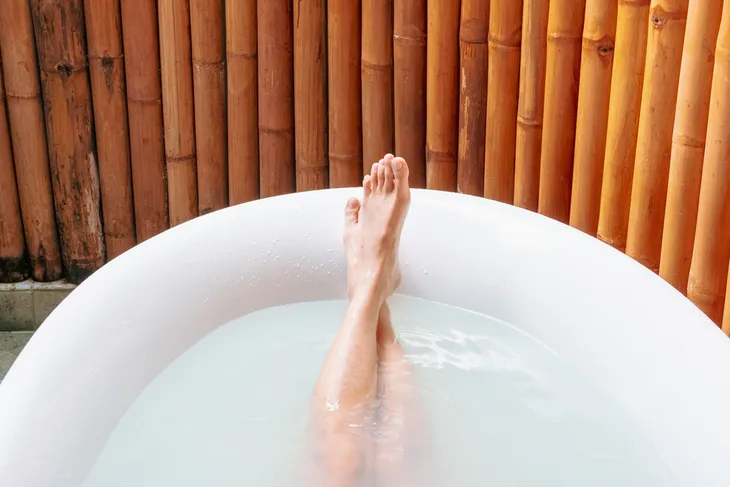- While psoriatic arthritis doesn’t directly cause insomnia, the symptoms of the disease can make sleeping a challenge.
- Luckily, by managing your condition and following a few simple tips, you can get better sleep.
- Investing in a comfortable sleep environment, reducing stress, and winding down before bedtime are just a few of the ways you can get better sleep with psoriatic arthritis.
Psoriatic arthritis is a chronic disease that develops when your body’s immune system attacks healthy cells and tissue. It typically causes joint pain, stiffness, and swelling but it can also affect people who have psoriasis which causes dry, red lesions on your skin. All of these symptoms can make sleeping a challenge. But the fact is, sleep is so important not just for your overall health, but for keeping psoriatic arthritis flares at bay.
Most adults need about 7- to 8-hours of sleep every day. If you have psoriatic arthritis and are having trouble sleeping, these tips may help you get the sleep you need!
How Does Psoriatic Arthritis Affect Sleep?
While the disease doesn’t directly cause insomnia, the symptoms can make falling and staying asleep a challenge. Healthline explains that itchy, dry skin, and joint pain can keep you awake at night. And it’s more common than you may think. One study found 84-percent of people with psoriatic arthritis have poor sleep quality.
Additionally, the Arthritis Foundation says poor sleep quality is a vicious cycle, meaning while the symptoms can make it difficult to sleep, disrupted sleep can also make your symptoms worse. This is why it’s so important to invest in your sleep and do what you can to get a better night’s rest. Let’s take a look at a few simple, yet effective tips you can try to get more quality sleep.
Talk to Your Doctor About Sleep Disorders
One reason you might not be getting a good night’s rest is if you have a sleep disorder. One sleep disorder that should be on your radar is obstructive sleep apnea, which causes interrupted breathing during sleep.
In fact, roughly 36- to 82-percent of individuals with psoriasis may also have obstructive sleep apnea. Some signs of sleep apnea include snoring, pauses in breathing during sleep, restless sleep, daytime sleepiness, and a sore throat upon awakening. If you think you may have a sleep disorder, talk to your doctor for a proper diagnosis and treatment plan.
Maintain a Regular Sleep Schedule
One effective way to improve your sleep is by sticking to a consistent sleep schedule. This means waking up and going to sleep at the same time every day, including days when you’re not working. The Sleep Foundation explains that maintaining a regular sleep schedule can help reset and regulate your body’s circadian rhythm (which is a natural, internal process that regulates your sleep and wake cycle).
Additionally, if you’re constantly feeling tired throughout the day, it might be helpful to try going to bed earlier. Do your best to stick to it. This extra time can help you wind down and relax and ensure you’re getting enough sleep each night.
Wear Comfortable Clothing
The dry and itchy red patches of psoriasis can also make sleeping a challenge. One way you can combat this obstacle is by sleeping in comfortable clothing.
Be sure to avoid clothes that trap heat and make you sweat. You should also avoid materials that can irritate the skin, such as wool. Healthline suggests wearing “loose-fitting cotton or silk clothing to bed.” These types of materials can help prevent irritation and in turn, help prevent waking up through the night.
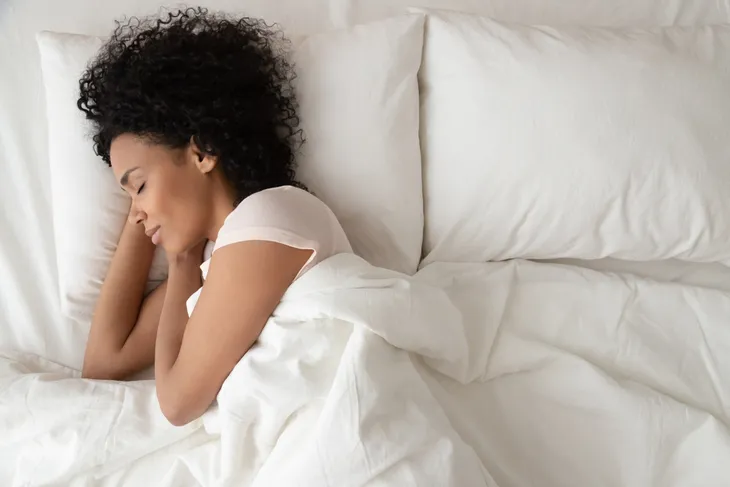 Shutterstock/fizkes
Shutterstock/fizkesBe Mindful of Caffeine
Do you start your day with a cup of coffee? How about an afternoon pick-me-up? If you regularly have coffee or any source of caffeine (including soda!) late in the day you may need to adjust your habits.
The American Academy of Sleep Medicine (AASM) explains that one study found consuming caffeine 6-hours before bedtime can reduce your total sleep time by 1-hour. The source also notes that the effects can be stronger in older adults because it takes their bodies longer to process the caffeine. So do your best to skip the afternoon coffee and try sipping on non-caffeinated beverages instead.
Stay Hydrated
Speaking of beverages, it’s also important to drink plenty of water. Staying hydrated benefits your body in so many ways but specifically for psoriatic arthritis, Healthline says it can help “lubricate and cushion your joints.” This can help reduce your symptoms, which may prevent waking throughout the night.
Just be sure to drink your water throughout the day and avoid drinking too much right before bed. Too much water before sleep can have the opposite effect as you’ll be waking up often to use the bathroom.
Avoid Exercising at Night
Symptoms of psoriatic arthritis can be painful, and while exercise may be the last thing on your mind, Healthline says some physical activity will likely help. Aerobic exercises and gentle yoga or tai chi can help decrease pain, fatigue, and stress and they can also improve your mood, all of which are important for psoriatic arthritis sufferers. But one thing you need to be mindful of is when you exercise.
Petros Efthimiou, MD, who runs New York Rheumatology Care, a concierge rheumatology practice in New York City tells Everyday Health that it’s best to exercise in the morning or mid-day. This will make you more likely to stick to a regular fitness routine and it turns out, it may also help you sleep longer and experience deeper sleep cycles.
Consider Hot and Cold Therapy
Hot and cold therapy may also help alleviate pain in your joints. Healthline says that different methods work better for everyone so you’ll have to experiment to find out which works best for you. Some examples of hot therapy are applying a hot water bottle or heating pad to your achy joints or taking a warm bath or shower. Just make sure the water isn’t too hot because long hot showers and baths can have the opposite effect and cause skin irritation and dryness.
Cold therapy can also be beneficial as it reduces blood flow around the achy joint and decreases inflammation. Try applying an ice pack to the affected joint but be sure to cover it with a soft cloth first. Start with 10-minutes on and 10-minutes off and see how your joints feel.
Moisturize Your Skin
It’s important to take care of your skin when you have psoriasis and Healthline says one of the simple ways to reduce skin irritation is to moisturize regularly. Applying lotion before bedtime can help prevent itchiness throughout the night, which in turn, can prevent you from waking up often.
Choose lotions that target dry skin or you can go the natural route and opt for coconut oil or shea butter. You may also need a medicated cream. So talk to your doctor if your dry, irritated skin is keeping you up at night.
 Shutterstock/Rido
Shutterstock/RidoAvoid Electronics Before Bedtime
Be honest with yourself, do you scroll your phone or watch tv right before bedtime? While you may feel like this is one way to relax, it can actually wreak havoc on your quality of sleep.
If you want to improve your sleep, it’s important to avoid electronics right before bedtime. The blue light from electronics can disrupt your circadian rhythm and interfere with your sleep. Healthline suggests setting “an electronic curfew” and turning off devices at least 30-minutes before you go to bed. However, the Sleep Foundation suggests powering down devices 2- to 3-hours before bedtime so you may need to do a bit of trial and error to find out when you need to shut off your electronics.
Reduce Stress
Chronic stress isn’t good for anyone but it can be especially bad for people with psoriatic arthritis because it can make your symptoms worse. The Arthritis Foundation explains that this is because stress “sets off the immune system’s inflammatory response,” and inflammation fuels joint damage. What’s more, stress can also lead to sleepless nights. So, it’s important to do what you can to reduce it.
Manage your stress by getting regular exercise, practicing breathwork and meditation, doing gentle stretching, or reading. Some people may also benefit from cognitive behavioral therapy, which helps you change the way you think and behave. There are many ways to reduce stress so you’ll need to experiment to find out what works best for you.
Invest in a Comfortable Sleeping Environment
Be honest, when you wake up, how does your body feel? If you’re feeling aches and pains every morning then it might be time to invest in a new mattress. But having a comfortable bed isn’t the only way you can improve your sleep environment.
Picking good quality sheets is also important. Psoriatic arthritis sufferers should steer clear of wool and synthetic fibers and instead, opt for natural fibers like cotton as they can help prevent skin irritation. The Better Sleep Council says the ideal bedroom should also be cool, dark, and quiet. Essentially you want to ensure your room is inviting, relaxing, and rejuvenating.
